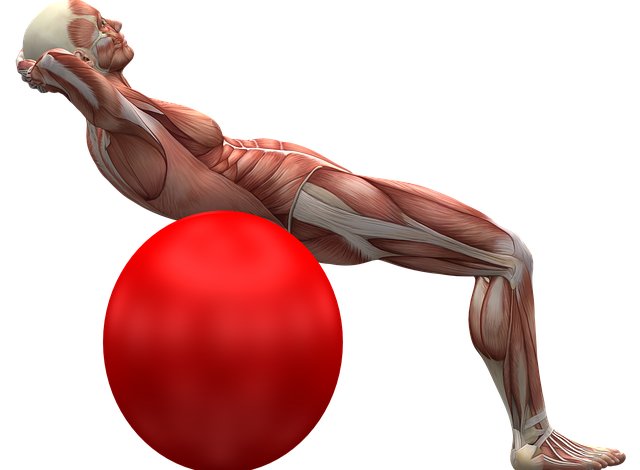How to Build Muscle Tips and Strategies for Increasing Muscle Mass

wellhealthorganic.com/how-to-build-muscle-know-tips-to-increase-muscles
Tips and Strategies for Increasing Muscle Mass Building muscle is a multifaceted process that requires dedication, consistency, and knowledge. Whether you’re a beginner or a seasoned gym-goer, understanding the principles behind muscle growth and implementing effective strategies can help you achieve your goals efficiently. In this comprehensive guide, we’ll explore various tips and techniques to help you build muscle effectively.
1.How to Build Muscle Tips and Strategies for Increasing Muscle Mass
Building muscle involves the hypertrophy of muscle fibers through consistent training and proper nutrition. It’s a process that requires a combination of strength training, adequate rest, and a nutritious diet.
2. Understanding Muscle Growth
Muscle growth, also known as hypertrophy, occurs through two main mechanisms: myofibrillar hypertrophy and sarcoplasmic hypertrophy. Myofibrillar hypertrophy focuses on increasing the size and strength of muscle fibers, while sarcoplasmic hypertrophy involves increasing the volume of fluid within the muscle cell.
3. Nutrition for Muscle Building
Nutrition plays a crucial role in muscle building. Consuming an adequate amount of protein is essential for muscle repair and growth. Additionally, maintaining a balanced diet rich in carbohydrates and healthy fats provides the energy needed for intense workouts.
– Importance of Protein
Protein is often referred to as the building block of muscle. It contains amino acids, which are essential for muscle repair and growth. Incorporating lean sources of protein such as chicken, fish, tofu, and legumes into your diet is essential for maximizing muscle gains.
– Balanced Diet for Muscle Growth
In addition to protein, a balanced diet consisting of complex carbohydrates, healthy fats, vitamins, and minerals is crucial for supporting overall health and muscle growth. Incorporate plenty of fruits, vegetables, whole grains, and healthy fats into your meals to fuel your workouts and promote recovery.
4. Effective Workout Strategies
Implementing effective workout strategies is key to building muscle efficiently. Incorporating resistance training exercises such as squats, deadlifts, bench presses, and rows helps stimulate muscle growth by placing stress on the muscles.
– Resistance Training
Resistance training involves using external resistance, such as weights or resistance bands, to challenge your muscles. Aim to incorporate compound exercises that target multiple muscle groups simultaneously for optimal results.
– Progressive Overload
Progressive overload is the gradual increase in the intensity, volume, or duration of exercise over time. By consistently challenging your muscles with increased resistance or workload, you stimulate further muscle growth and strength gains.
5. Rest and Recovery
Rest and recovery are often overlooked aspects of muscle building but are equally important as training and nutrition. Giving your muscles adequate time to rest and repair is essential for preventing overtraining and promoting optimal growth.
– Importance of Rest Days
Incorporate rest days into your workout routine to allow your muscles to recover and rebuild. Avoid training the same muscle groups on consecutive days to prevent overuse injuries and maximize recovery.
– Quality Sleep for Muscle Repair
Quality sleep is essential for muscle repair and recovery. Aim for 7-9 hours of uninterrupted sleep each night to support optimal hormone production and muscle growth.
6. Supplements for Muscle Growth
While not essential, certain supplements can complement your diet and training routine to support muscle growth and recovery.
– Protein Supplements
Protein supplements such as whey protein powder can be convenient options for meeting your daily protein requirements, especially for those with busy lifestyles.
– Creatine
Creatine is a naturally occurring compound found in muscle cells that helps produce energy during high-intensity exercise. Supplementing with creatine has been shown to increase muscle mass and strength.
– Branched-Chain Amino Acids (BCAAs)
BCAAs, including leucine, isoleucine, and valine, are essential amino acids that play a crucial role in muscle protein synthesis. Supplementing with BCAAs can help reduce muscle soreness and accelerate recovery.
7. Avoiding Overtraining and Injury
Overtraining can hinder muscle growth and increase the risk of injury. Listen to your body and prioritize proper form and technique during workouts to prevent overuse injuries.
– Listening to Your Body
Pay attention to signs of fatigue, soreness, and decreased performance. If you’re feeling excessively fatigued or experiencing persistent pain, take a break from training to allow your body to recover.
– Proper Form and Technique
Maintaining proper form and technique during exercises is essential for maximizing muscle engagement and minimizing the risk of injury. Focus on quality over quantity and seek guidance from a qualified fitness professional if needed.
8. Tracking Progress
Tracking your progress is essential for staying motivated and making adjustments to your training and nutrition plan as needed.
– Measuring Muscle Gain
Use tools such as body measurements, progress photos, and strength assessments to track changes in muscle size and strength over time.
– Keeping a Workout Journal
Keeping a workout journal allows you to record your workouts, track progress, and identify areas for improvement. Note down the exercises, sets, reps, and weights used during each session to ensure progressive overload.
9. Staying Consistent and Patient
Building muscle takes time and consistency. Stay committed to your workout routine and nutrition plan, and be patient with your progress. Results may not come overnight, but with dedication and perseverance, you can achieve your muscle-building goals.
10. Conclusion
Building muscle requires a combination of proper nutrition, effective workout strategies, adequate rest, and patience. By implementing the tips and strategies outlined in this guide, you can maximize your muscle-building potential and achieve the physique you desire.
FAQs (Frequently Asked Questions)
- How long does it take to build noticeable muscle mass?Building noticeable muscle mass varies depending on factors such as genetics, diet, training intensity, and consistency. While some individuals may see results within a few weeks, it typically takes several months of consistent training and proper nutrition to see significant changes.
- Can I build muscle without lifting weights?While resistance training with weights is one of the most effective ways to build muscle, it’s possible to achieve muscle growth through bodyweight exercises and other forms of resistance, such as resistance bands or kettlebells.
- Is it necessary to take supplements for muscle growth?While supplements can be helpful for some individuals, they are not essential for building muscle. A balanced diet rich in whole foods can provide all the nutrients your body needs for muscle growth and recovery.
- How often should I change my workout routine for muscle growth?It’s beneficial to change your workout routine every 4-6 weeks to prevent plateaus and keep your muscles challenged. Incorporating variations in exercises, sets, reps, and intensity can help stimulate continuous muscle growth.
- What role does genetics play in muscle building?Genetics play a significant role in determining an individual’s muscle-building potential, including factors such as muscle fiber composition, hormone levels, and metabolism. While genetics may influence the rate and extent of muscle growth, consistent training and proper nutrition can still lead to significant improvements in muscle mass and strength.
skin-care-in-hindi-wellhealthorganic-achieving-healthy-and-glowing-skin/





